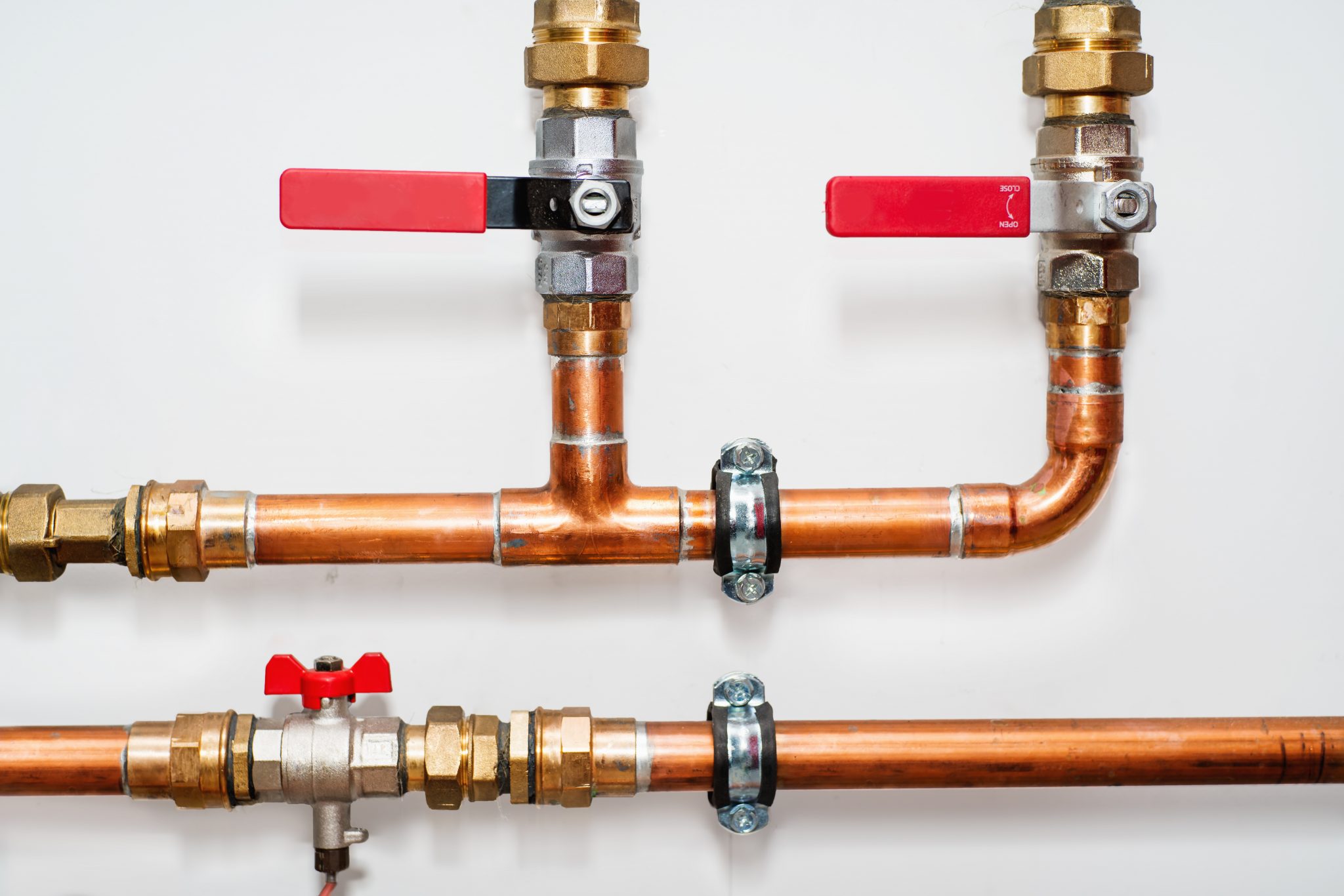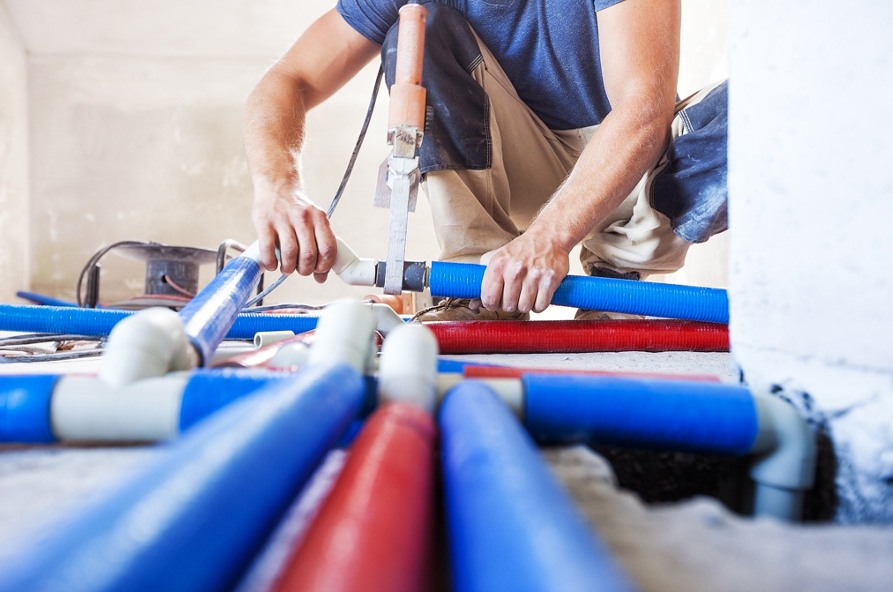Why Buying Repiping Providers Is Important for Your Home's Plumbing Health and wellness
Repiping services play a necessary function in keeping a home's plumbing wellness. In time, pipes can rust, leakage, or end up being clogged, leading to prospective risks and ineffectiveness. Home owners typically ignore the indications of deteriorating plumbing, which can result in significant damages. Understanding the need for repiping is important. What elements should property owners think about before making this financial investment? The answers might amaze you.
Comprehending the Value of Repiping
While lots of home owners might forget the significance of repiping, it plays an important role in preserving the overall health of a plumbing system. In time, pipes can wear away, develop leakages, or end up being blocked with mineral deposits, leading to lowered water high quality and flow stress. Repiping addresses these problems by replacing old, broken pipes with brand-new, long lasting materials, ensuring a reliable water and decreasing the danger of costly fixings connected with leakages and water damage. In addition, modern piping products are commonly more reliable and environmentally pleasant, adding to lower power prices and improved water preservation. Conducting a repiping job can boost a home's resale value, making it a sensible financial investment for property owners. Inevitably, recognizing the value of repiping allows property owners to take aggressive steps in securing their pipes systems and ensuring a risk-free, useful living environment for their families.
Typical Signs That Indicate the Requirement for Repiping
House owners need to be watchful for sure indicators that show the need for repiping, as overlooking these problems can cause extra severe pipes troubles. One common indication is the existence of constant leakages, which can recommend aging or degrading pipes. Furthermore, an obvious decrease in water stress might show clogs or deterioration within the pipes system. Home owners could also notice discolored or rusty water, signifying pipeline destruction. Unexplained water bills that are significantly more than typical can also hint at leakages concealed within the walls. The development of mold and mildew or mold in areas near pipes components can suggest moisture concerns stemming from damaged pipelines. Lastly, if the home has old galvanized piping, it may be time to think of repiping, as this material is prone to corrosion and corrosion. Recognizing these indications early can help maintain a healthy and balanced plumbing system.
The Risks of Ignoring Pipes Issues
Disregarding pipes problems can lead to considerable water damage, which might compromise the architectural stability of a home. Furthermore, unsolved leaks can develop an environment for mold and mildew growth, posturing major wellness dangers to owners. Resolving plumbing issues promptly is vital to safeguard both property and wellness.
Water Damage Worries
When pipes issues go unaddressed, the danger of water damage intensifies significantly. Leakages, trickles, and splits in pipes can cause substantial water intrusion, jeopardizing the architectural integrity of a home. Gradually, even small leakages can trigger rot, mold and mildew development, and damage to walls and floor covering, resulting in costly repair work. Water damages can likewise affect electric systems, developing unsafe problems. Home owners frequently undervalue the collective influence of tiny leaks, which can result in extensive damage if not quickly resolved. Ignoring plumbing issues not only enhances the probability of instant damages yet can likewise lessen residential or commercial property worth and position long-term financial concerns. Therefore, timely repiping services are important to avoid water damage and maintain a healthy home atmosphere.
Health Hazards Increase
Unresolved pipes problems can lead to considerable health and wellness risks within a home. Contaminated water from rusty pipes can lead and present unsafe bacteria to severe illnesses. Mold growth, frequently an outcome of leaks and excess dampness, postures respiratory system dangers and can set off sensitive reactions. In addition, stationary water can bring in insects such as pests and rodents, which bring diseases that additionally jeopardize household health. Overlooking these plumbing issues not just compromises the safety and security of residents however can additionally decrease property value. Subsequently, dealing with pipes concerns through repiping solutions is crucial. Prompt intervention not only safeguards health and wellness yet additionally guarantees a safe living atmosphere, protecting against more considerable damage and expensive fixings down the line.
Different Kinds of Piping Materials
Piping materials are a necessary part in pipes systems, affecting sturdiness, effectiveness, and general efficiency. Different choices are readily available, each with one-of-a-kind residential properties and applications. Copper piping is recognized for its long life and resistance to deterioration, making it a preferred choice for both cold and hot water lines. PVC (polyvinyl chloride) is light-weight, economical, and resistant to chemical damage, mostly utilized for drain and air vent systems. PEX (cross-linked polyethylene) has actually obtained popularity because of its adaptability and ease of installment, permitting for fewer joints and potential leakage points. Galvanized steel, though once usual, is less beneficial today due to its susceptibility to rust and decreased water flow with time. Each product presents unique advantages and drawbacks, making it crucial for home owners to talk to plumbing experts to identify the most ideal alternative for their details requirements and conditions. Picking the best piping product can substantially impact the performance and safety of a plumbing system.
The Repiping Process: What to Expect
The repiping procedure starts with a detailed analysis of the existing pipelines to identify concerns and determine the finest training course of activity. Following this analysis, homeowners will certainly require to pick proper substitute products that fit their pipes needs. Lastly, an overview of the installation procedure will certainly give insights into what to expect during this considerable home enhancement.
Analysis of Existing Pipes
An accurate assessment of existing pipelines is essential for guaranteeing the long-term health of a pipes system. This analysis involves evaluating the materials, age, and condition of the pipelines, along with determining any kind of indicators of deterioration, leakages, or clogs - Houston Repiping Experts. Professional plumbing technicians commonly utilize innovative methods such as video clip inspections to gain a clear sight of the pipeline's inside without invasive procedures. By recognizing problem areas early, house owners can prevent further damage and costly fixings in the future. Additionally, understanding the existing state of the pipes infrastructure aids in making educated decisions concerning needed upgrades or repiping. In general, a detailed analysis works as the structure for an effective repiping process, ensuring that the new system satisfies the home's particular requirements
Selecting Replacement Products
After evaluating the existing pipes, home owners face the important choice of selecting proper substitute materials for their plumbing system. Usual choices consist of copper, PVC, PEX, and CPVC, each with unique advantages and disadvantages. Copper is known for its longevity and resistance to deterioration, making it a long-lasting choice. PVC is affordable and lightweight, suitable for drainpipe and vent lines. PEX offers versatility and is immune to scale and chlorine, making installation easier in limited rooms. CPVC is similar to PVC however can withstand greater temperature levels. Property owners have to consider aspects such as budget, neighborhood building codes, and the particular requirements of their pipes system when making this decision, guaranteeing excellent performance and long life for their home's pipes infrastructure.
Installation Process Introduction
Repiping a home can be a substantial endeavor, however comprehending the installment procedure aids property owners plan for what exists ahead. The process generally starts with a thorough evaluation of the existing plumbing system to identify problem areas. Next, a comprehensive plan is formulated, outlining the required materials and timelines. On the setup day, experts will frequently start by turning off the water supply and draining the existing pipelines. They then remove the old piping, which might include opening walls or ceilings for access. Brand-new pipelines are set up, ensuring they meet existing plumbing codes. The system is evaluated for leaks, and any kind of openings are repaired. Homeowners can anticipate a efficient and tidy process, minimizing disturbance to their everyday lives.
Long-Term Conveniences of Repiping Your Home
While numerous house owners might neglect the value of upgrading their pipes, the lasting benefits of repiping a home can significantly improve both its worth and capability. Among the primary advantages is enhanced water high quality. Older pipelines might nurture impurities and corrosion, while brand-new piping warranties clean and safe water delivery. Additionally, repiping can result in enhanced water pressure, making everyday tasks much more effective.

How to Select the Right Pipes Solution for Repiping
Just how can homeowners guarantee they select the best plumbing service for repiping? They must investigate regional plumbing companies, concentrating on those that specialize in repiping solutions. Repipe Pros. Reviewing on-line testimonials and endorsements can give understandings into the quality of service supplied. It's crucial to look for proper licensing and insurance coverage, guaranteeing the chosen firm follow regional policies
Homeowners need to likewise request thorough quotes from several companies to compare rates and services supplied. Engaging straight with potential plumbing professionals can assist analyze their proficiency, interaction abilities, and desire webpage to answer inquiries. On top of that, requesting referrals from previous clients can confirm a business's integrity and workmanship.
Property owners must consider the business's service warranty plans on materials and labor, as this can show their dedication to quality. By following these standards, home owners can make an informed option, securing their pipes health through efficient repiping solutions.
Regularly Asked Inquiries
How much time Does a Normal Repiping Job Require To Full?
A typical repiping project typically takes between one to five days to complete, depending upon the dimension of the home and intricacy of the pipes system. Appropriate preparation and service provider expertise can influence overall duration considerably.
Will Repiping Increase My Home's Resale Value?
Repiping frequently improves a home's resale value, as prospective buyers appreciate updated pipes systems. This renovation lowers possible pipes concerns, making the home more attractive and possibly validating a higher asking price during sale arrangements.
Can I Remain In My Home Throughout Repiping?
During repiping, staying in the home is often feasible, yet it may depend on the level of the job. House owners must get ready for momentary disruptions and seek advice from contractors for blog particular plans and safety considerations.
What Is the Ordinary Expense of Repiping a Home?
The average price of repiping a home normally ranges from $4,000 to $15,000, depending on aspects such as the size of your home, materials used, and labor expenses related to the pipes work. - Houston Repipe Company
Do I Required a License for Repiping Providers?
A license is commonly required for repiping solutions, as it guarantees conformity with local building regulations and laws. House owners need to consult their regional authority or a qualified plumbing technician to determine particular allowing requirements for their location.
